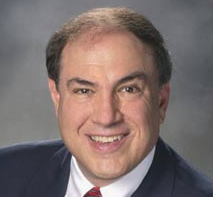Industry Insights
April 17, 2019
Gelman: Employer Must Accommodate Off-Hours Use of Medical Marijuana
- State: New Jersey
- - 0 shares
An employee licensed to use medical marijuana under the New Jersey Compassionate Use Medical Marijuana Act may proceed with a New Jersey Law Against Discrimination (LAD) action ageist his employer for unlawful termination.

Jon L. Gelman
The employee, who was suffering from cancer, received a license from his medical doctor to obtain and use medical marijuana. The employee was involved in a motor vehicle accident, and the employer terminated him upon learning he was using the drug.
While the court did not address the effect of medical marijuana on job performance, it did opine:
“In considering the relationship between the Compassionate Use Act and the LAD, we start by rejecting plaintiff’s argument that these enactments are in conflict. We reject that assertion because the Legislature plainly said there was no conflict; the Legislature’s actual words bear repeating: 'Nothing in this act shall be construed to require ... an employer to accommodate the medical use of marijuana in any workplace.' These words are unambiguous; they require no interpretation and permit no deviation. Those words can only mean one thing: The Compassionate Use Act intended to cause no impact on existing employment rights. The Compassionate Use Act neither created new employment rights nor destroyed existing employment rights; it certainly expressed no intent to alter the LAD. Just as the Compassionate Use Act imposes no burden on defendants, it negates no rights or claims available to plaintiff that emanate from the LAD.
“…. To rephrase what we said earlier, just because the Legislature declared that '[n]othing in [the Compassionate Use Act] shall be construed to require ... an employer to accommodate the medical use of marijuana in any workplace,' [that] does not mean that the LAD may not impose such an obligation, particularly when the declination of an accommodation to such a user relates only to use 'in any workplace.' Judging this argument solely by reference to the pleadings and the statutes in questions, we repeat that plaintiff did not allege he sought an accommodation for his use of medical marijuana 'in [the] workplace'; he alleged only that he sought an accommodation that would allow his continued use of medical marijuana 'off-site' or during 'off-work hours.'”
Case law is developing in medical marijuana, and how it integrates with the Workers’ Compensation Act (WCA) is yet to be determined.
Claimants' attorney Jon L. Gelman is the author of "New Jersey Workers’ Compensation Law" and co-author of the national treatise "Modern Workers’ Compensation Law." He is based in Wayne, New Jersey. This blog post is republished with permission.
Advertisements
Columns
- Barthel: Is Pot a Defense? Are You High? 12/22/25
- Barthel: Is Dubon II on the Way Out? 12/17/25
- Montgomery: San Fran City Official Stole $627k From Workers' Comp Division 12/10/25
- Kamin: Ring the Bells for Settlement Season 12/08/25
- Paduda: Does Comp Care About Workers? 12/05/25
- Sandoval: Throwing Subrogation Under the Bus 12/03/25
- Johnson: Some Thoughts on Apportionment - And SIBTF 11/20/25
- Montgomery: State's First Responders May File Comp Claims for Trauma 11/14/25
- Snyder: Use This New Survey to Negotiate Better 11/12/25
- Holden: Workers' Compensation Act Withstands Another Constitutional Attack 11/11/25
- Gelman: Sherrill's Win Locks in Worker Protections 11/10/25
- Kamin: Newsom Promises SIBTF Reforms in 2026 11/07/25
- Kamin: Comp Costs Hit Highest Combined Ratio Since 2001, WCIRB Says 11/05/25
- Montgomery: DIR to Blow $1.25M on Another Questionable Comp Study 11/03/25
- Wroten: California Sets the Standard as New Study Links Workplace Injuries to Heat Exposure 10/29/25
- Kamin: En Banc Clarifies Policy Reporting Requirements 10/27/25
- Gelman: PTSD-Stricken Officer's Disability Claim Denied 10/22/25
- Snyder: TAG a Structured Settlement Broker 10/17/25
- Snyder: New Medi-Cal Rules Can Affect Your Settlement 10/15/25
- Fish: Guarding Against PTSD Overdiagnosis 10/10/25
Now Trending
- Workers' Compensation News
-
Calif. Fraud
Conviction Leads to $132,023
Restitution…
Posted on Dec 16, 2025
-
Calif. Jury
Acquits Neurosurgeon on Conspiracy…
Posted on Dec 22, 2025
-
Calif. Former CHP
Officer Gets 270 Days for Fraud,
$360,620 Restitution…
Posted on Dec 19, 2025
-
Calif. State Fund
Only Carrier Providing Benefits
Through Prepaid…
Posted on Dec 19, 2025
-
Calif. DWC
Launches Online System for Public
Records…
Posted on Dec 19, 2025Kimberley J Pryor says: “Injured worker advocates must be very careful when uploading medical records to…”
-
Calif. Nicholas
Roxborough Elected CHSWC…
Posted on Dec 22, 2025
-
N.J. Legislators
Seek to Block ABC Rule…
Posted on Dec 15, 2025
-
Ariz. Delay in
Worker's Report of Injury Doesn't
Defeat…
Posted on Dec 18, 2025
-
N.Y. Governor
Vetoes Proposed Expansion of
Permanent Total…
Posted on Dec 16, 2025
-
Texas Appeals
Court: Cadets Covered by Immunity
Waiver for…
Posted on Dec 22, 2025
Jobs
- Workers’ Compensation Defense Attorney - 100% Remote
- In-house REMOTE Workers' Compensation Litigation Attorney
- Defense Attorneys - Remote Work Available
- Trial Attorney - Workers Compensation Staff Counsel
- Defense WC Attorney Wanted- We will beat any offer for the right candidate. Low billables, real bonuses and fast track equity partnership
- JC-495846 Workers’ Compensation Judge
- Test post Workers' Compensation Jobs
Upcoming Events
Jan 15, 2026
Webinar: Psychosocial Factors
Discover how psychosocial factors impact recovery outcomes in injured workers during WCRI’s 30-min …
Jan 22, 2026 – Dec 22, 2025
Save the Date! Outlook 2026: W
WorkCompCentral is hosting a 120-minute, CA MCLE–accredited live webinar on January 22, 2026 (time …
Mar 3-4, 2026
Save The Date! WCRI’s 2026 Ann
Registration will open up in the coming months. We'll see you there! - Leading national workers' …
Social Media Links
c/o Business Insurance Holdings, Inc.
Greenwich, CT 06836




No Comments
Log in to post a comment